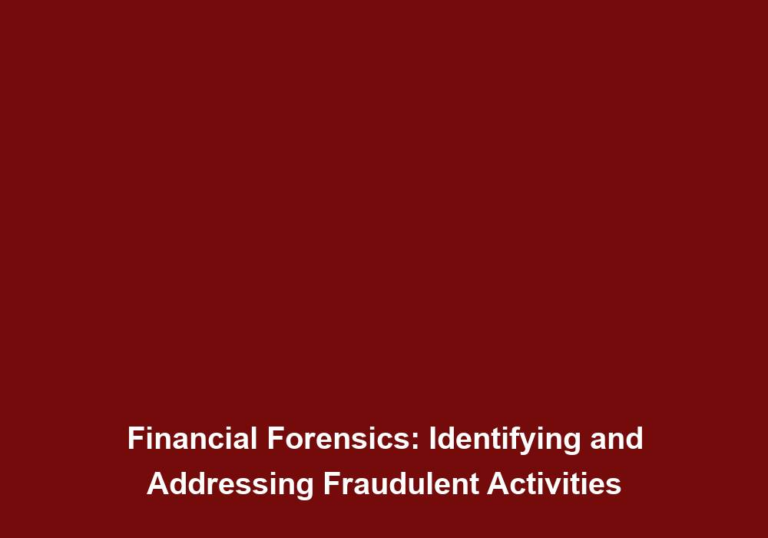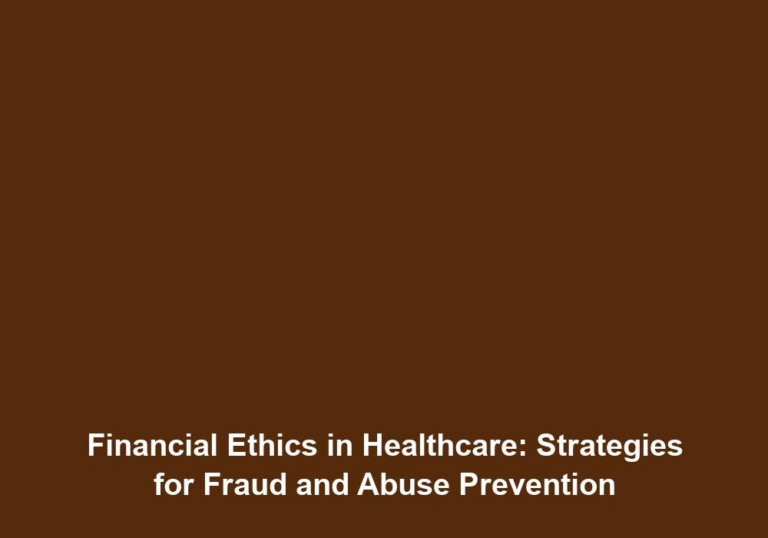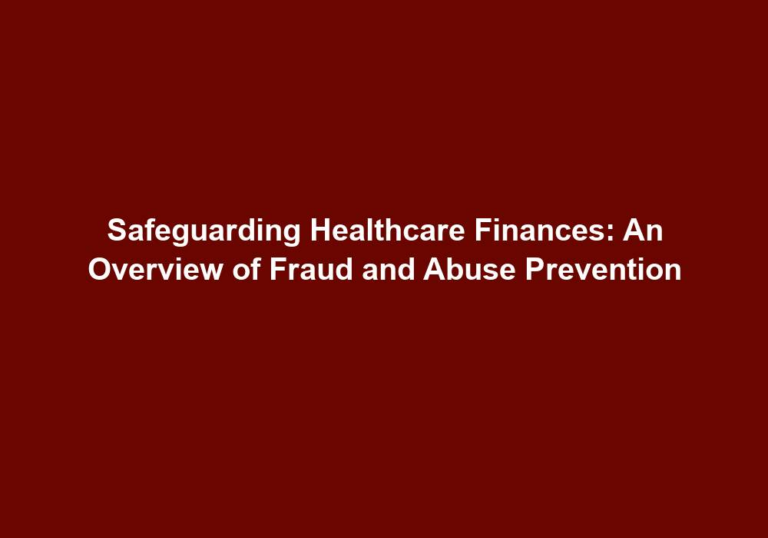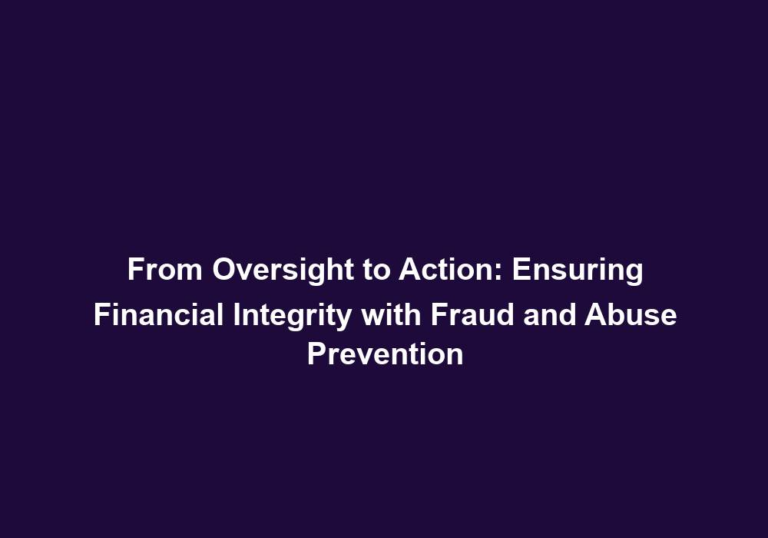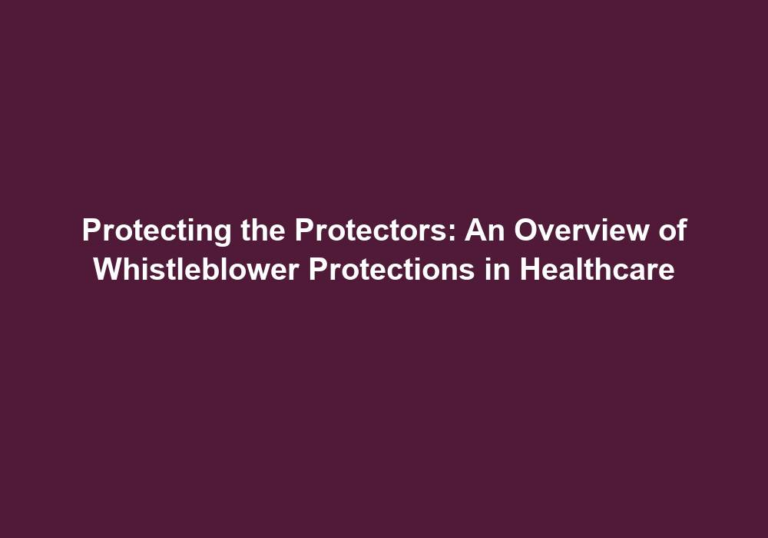Voices Against Corruption: Ensuring Safety with Whistleblower Protections
Introduction
Whistleblower protections play a vital role in safeguarding society against corruption and ensuring transparency and accountability. The voices of those who dare to speak up against wrongdoing are crucial in maintaining the integrity of organizations, industries, and even governments. In this article, we will explore the significance of whistleblower protections and how they contribute to a safer and more just society.
Whistleblowing is the act of reporting illegal, unethical, or fraudulent activities within an organization. Whistleblowers, often employees or insiders, bring such misconduct to light by revealing confidential information. Their actions aim to expose wrongdoing, protect the interests of the public, and promote accountability.
The Importance of Whistleblower Protections
Whistleblower protections are essential for several reasons:
1. Encouraging Transparency
By providing legal safeguards to whistleblowers, organizations and governments create an environment where individuals feel safe to expose misconduct without fear of retaliation. This encourages transparency within institutions and helps uncover hidden corruption.
Whistleblower protections foster a culture of openness and honesty within organizations. When employees know that they can report illegal or unethical activities without facing negative consequences, they are more likely to come forward with valuable information. This transparency can help identify and address corruption at an early stage, preventing further harm.
2. Detecting and Preventing Corruption
Whistleblower protections enable individuals to come forward with information about corruption, fraud, or other illegal activities. This early detection helps prevent further harm and allows authorities to take prompt action to address such issues.
When whistleblowers are protected and encouraged to report misconduct, they become a valuable source of information for law enforcement agencies and regulatory bodies. Their disclosures can lead to investigations, uncovering corrupt practices that may otherwise go unnoticed. By addressing corruption promptly, whistleblower protections contribute to a safer and more ethical society.
3. Safeguarding the Public Interest
Whistleblowers often act in the best interest of the public. Their disclosures can save lives, protect the environment, and ensure the proper use of public funds. Whistleblower protections ensure that individuals who prioritize public welfare over personal interests are shielded from retribution.
When whistleblowers expose wrongdoing that poses a threat to public safety or the environment, they play a crucial role in safeguarding the well-being of communities. Whistleblower protections not only protect these individuals from retaliation but also encourage others to come forward and prioritize the public interest.
4. Strengthening Accountability
Whistleblower protections are crucial in holding wrongdoers accountable. When individuals have the confidence to report misconduct, it becomes harder for corrupt practices to go unnoticed or unpunished. This helps foster a culture of accountability within organizations and society as a whole.
By protecting whistleblowers from retaliation, whistleblower protections ensure that those who engage in corrupt activities face the consequences of their actions. This accountability deters potential wrongdoers and instills trust in the integrity of institutions.
Examples of Whistleblower Protections
Whistleblower protections can take various forms depending on the jurisdiction and industry. Some common examples include:
1. Whistleblower Hotlines
Many organizations establish dedicated hotlines to allow employees to report misconduct anonymously. These hotlines ensure that employees can safely disclose information without the fear of facing retaliation from their superiors.
Whistleblower hotlines provide a secure and confidential channel for individuals to report illegal or unethical activities. By allowing anonymous reporting, these hotlines protect whistleblowers from potential backlash, encouraging them to come forward with valuable information.
2. Legal Protection Against Retaliation
Laws and regulations protect whistleblowers from retaliation, such as termination, demotion, or harassment, in response to their disclosures. These legal safeguards provide reassurance to potential whistleblowers and encourage them to come forward with vital information.
Legal protection against retaliation is crucial in ensuring the safety and well-being of whistleblowers. When individuals know that they are protected by the law, they are more likely to report misconduct, even in high-stakes situations.
3. Confidentiality and Anonymity
Whistleblower protections often guarantee the confidentiality and anonymity of individuals who report misconduct. This ensures that whistleblowers can provide information without the risk of their identity being exposed, safeguarding them from potential harm.
Confidentiality and anonymity are essential for protecting whistleblowers from retaliation and maintaining their safety. When whistleblowers feel secure in their anonymity, they are more likely to come forward and disclose crucial information.
4. Financial Incentives
Some jurisdictions offer financial rewards or incentives to individuals who provide valuable information leading to the successful prosecution of those engaged in corrupt practices. These incentives act as motivators for potential whistleblowers to step forward and disclose crucial information.
Financial incentives can serve as a way to recognize and reward whistleblowers for their courage and integrity. By offering monetary rewards, jurisdictions encourage individuals with insider knowledge to come forward, increasing the chances of uncovering corruption.
Challenges Faced by Whistleblowers
Despite the importance of whistleblower protections, individuals who choose to blow the whistle still face numerous challenges:
1. Fear of Retaliation
One of the most significant concerns for potential whistleblowers is the fear of retaliation from their employers or colleagues. Even with legal protections in place, the emotional and professional consequences of reporting misconduct can be daunting.
Fear of retaliation can deter individuals from speaking up, even when they witness wrongdoing firsthand. To address this challenge, it is crucial to ensure that whistleblower protections are robust and effectively enforced, providing whistleblowers with the confidence they need to come forward.
2. Lack of Awareness
Many individuals may not be aware of the existing whistleblower protections or how to access them. This lack of awareness can deter potential whistleblowers from coming forward, as they may not know their rights or the available channels for reporting.
Raising awareness about whistleblower protections is essential to overcome this challenge. Governments, non-profit organizations, and educational institutions can collaborate to launch campaigns that highlight the importance of whistleblowing and inform the public about available protections.
3. Legal Obstacles
Navigating the legal process involved in blowing the whistle can be complex and intimidating. Understanding the legal framework and ensuring the protection of one’s rights can present significant challenges for whistleblowers.
To address this challenge, efforts should be made to simplify the legal processes and provide accessible resources for whistleblowers. Legal assistance and guidance can empower whistleblowers and enable them to navigate the complexities of reporting misconduct effectively.
4. Stigma and Isolation
Whistleblowers often face stigma and isolation within their professional and personal networks. Being labeled as a troublemaker or disloyal can have severe repercussions on their career and personal relationships.
Creating support networks for whistleblowers is crucial to address the challenge of stigma and isolation. These networks can provide a community of like-minded individuals who have faced similar challenges, offering guidance, emotional support, and resources throughout the whistleblowing journey.
The Way Forward
To strengthen whistleblower protections and ensure safety for those who speak out against corruption, several measures can be implemented:
1. Awareness Campaigns
Promoting awareness about whistleblower protections is essential to encourage individuals to come forward. Government agencies, non-profit organizations, and educational institutions can collaborate to launch campaigns that highlight the importance of whistleblowing and inform the public about available protections.
By educating the public about whistleblower protections, individuals can make informed decisions and understand the value of speaking up against corruption.
2. Enhanced Legal Frameworks
Continued efforts should be made to improve and expand existing legal frameworks that protect whistleblowers. This includes enacting legislation that safeguards against retaliation, streamlining reporting mechanisms, and simplifying legal processes to support and protect whistleblowers effectively.
Enhanced legal frameworks can provide stronger protections for whistleblowers, ensuring that their rights are upheld and that they are shielded from retaliation. This can help create an environment where individuals feel safe to report misconduct without fear.
3. Education and Training
Providing education and training programs on whistleblowing can empower individuals with the knowledge and skills necessary to navigate the complexities of reporting misconduct. This can address the lack of awareness and contribute to a culture that values and supports whistleblowers.
Education and training programs can equip individuals with the understanding of their rights as whistleblowers and provide them with the necessary tools to overcome challenges. By educating employees and organizations about the importance of whistleblowing, a culture of transparency and accountability can be fostered.
4. Support Networks
Establishing support networks for whistleblowers can alleviate the feelings of isolation and provide individuals with a community of like-minded individuals who have faced similar challenges. These networks can offer guidance, emotional support, and resources to aid whistleblowers throughout their journey.
Support networks can provide whistleblowers with a sense of belonging and solidarity. By connecting whistleblowers with others who have undergone similar experiences, these networks offer a platform for sharing advice, resources, and emotional support.
Conclusion
Voices against corruption must be protected and encouraged through robust whistleblower protections. These protections not only promote transparency and accountability but also safeguard the public interest. By addressing the challenges faced by whistleblowers and implementing measures to enhance protections, we can work towards a safer, fairer, and more just society. Let us amplify these voices against corruption, ensuring a brighter future for all.


